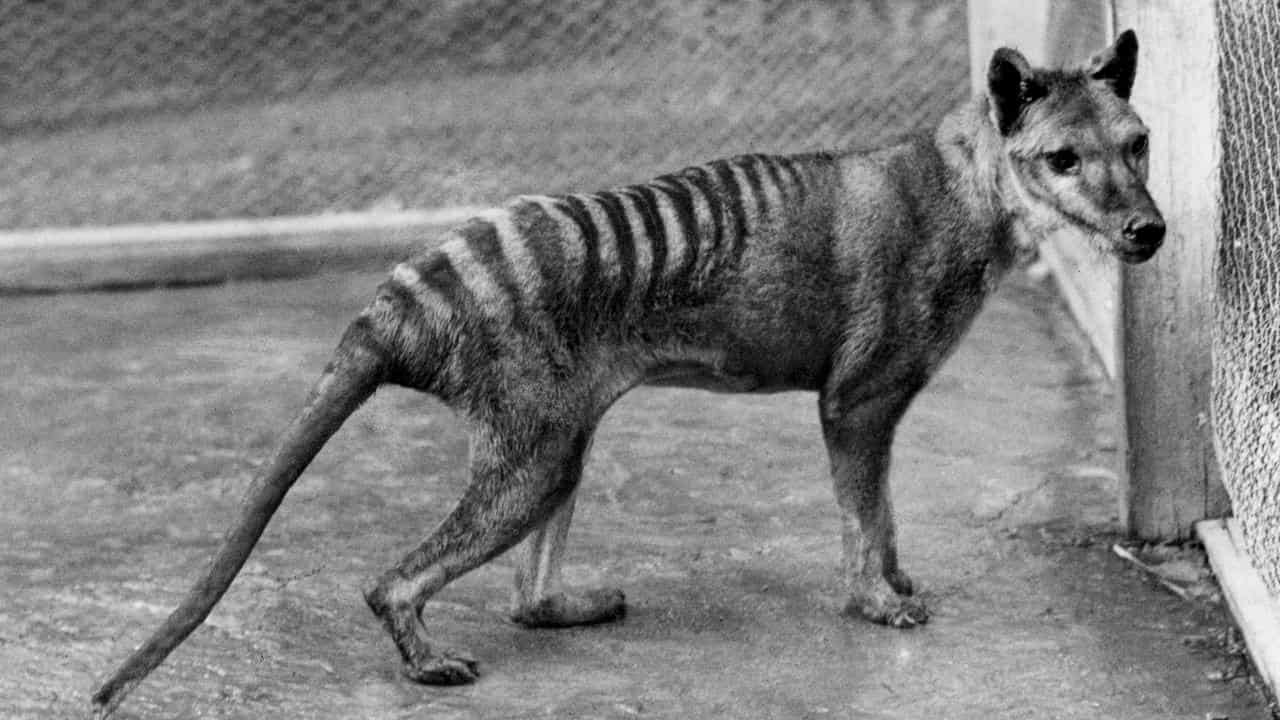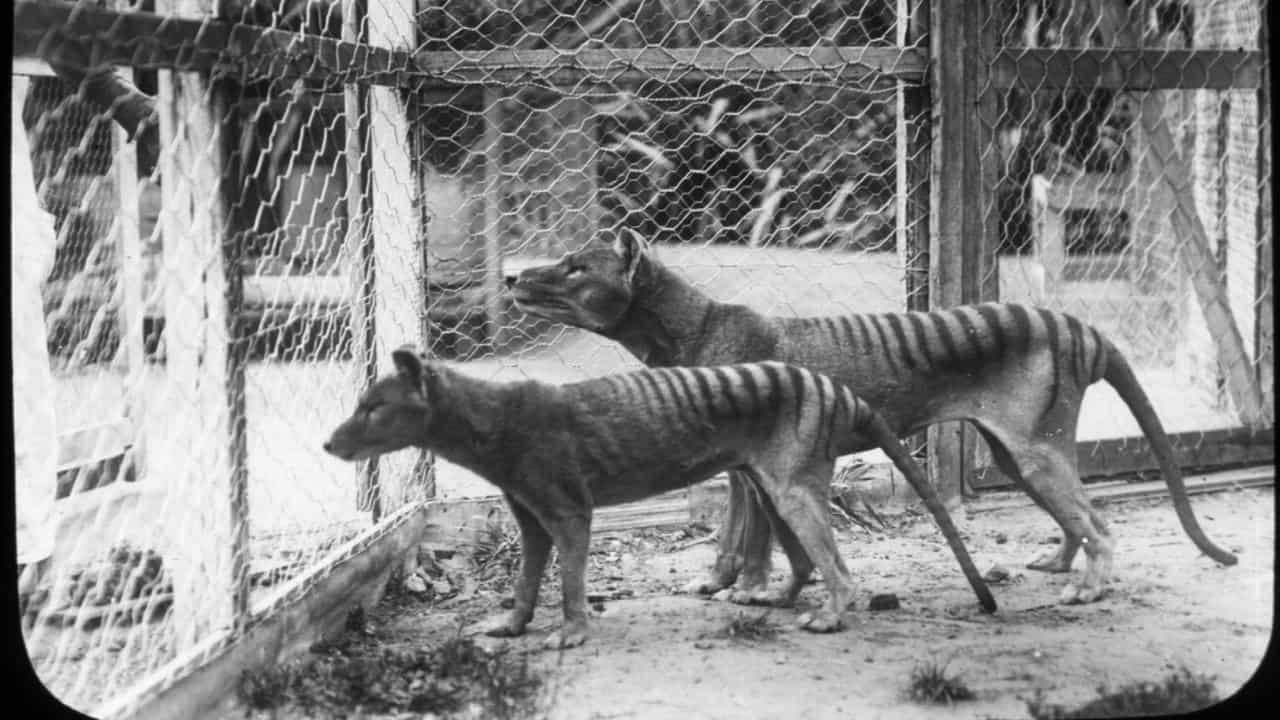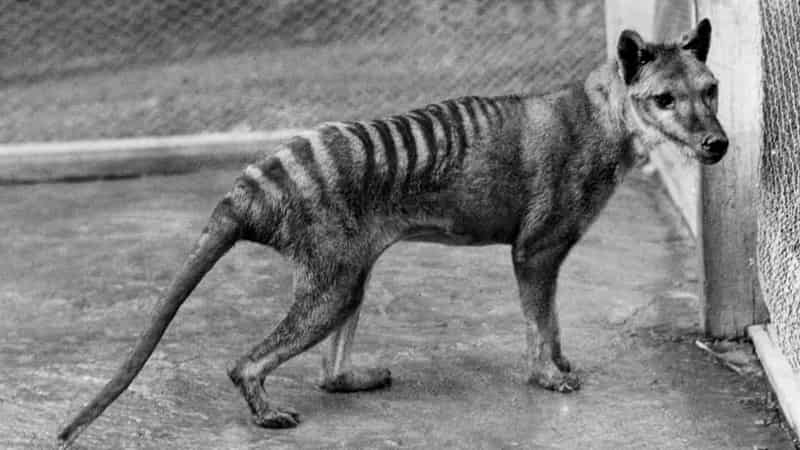
A US-based biotechnology firm attempting to "de-extinct" the Tasmanian tiger using DNA from another marsupial has released cartoon-narrated videos in a bid to win over sceptics.
Colossal Foundation in early October said it had reconstructed the thylacine genome to 99.9 per cent accuracy - a claimed world-first for an extinct species.
The company, which announced the project in 2022, wants to eventually return the carnivorous marsupial to the wild.
Colossal has released four videos, voiced by an animated thylacine, aiming to explain the environmental significance of the species and the science involved.
"It sounds like a movie we've all seen, but it's not," one video says, referencing 1993 blockbuster film Jurassic Park.
"Well the science is sort of same-y in theory but everything else, no way.
"Our return could prove (we) could right the past wrongs and restore our natural heritage, which will in return create a more sustainable future for the island."
The last-known thylacine died in captivity in a Hobart zoo in 1936 with colonial hunting, disease and habitat change blamed for its demise.
In a University of Melbourne collaboration, Colossal wants to create a "near perfect" genetic match to the thylacine using DNA from its closest living relative, the fat-tailed dunnart.
The plan is for thylacine young to be birthed by dunnart surrogate mothers and then develop in an artificial pouch.
"(The genome reconstruction) represents significant progress in achieving the goal of 'de-extincting' the thylacine," Colossal CEO Ben Lamm said.
"The company is excited for what this scientific milestone can mean for Tasmania and the world."
Some scientists have poured cold water on Colossal's genome claim, saying they wanted to see peer-reviewed data before getting too excited.

Mayor of a council in the island state's south, Michelle Dracoulis, is chairing Colossal's Tasmanian Thylacine Advisory Committee.
"We created these videos to help to dispel some of the myths and scepticism, and answer questions that many people have about the thylacine and the de-extinction project," she said.
"I think one of the most important messages from the series is explaining why this project is important for Tasmania.
"In part, it’s about restoring our apex predator to the ecosystem and halting the inevitable trophic downgrading that’s occurring due to its absence."
Colossal says it wants to create a thylacine that is a near-perfect match to its original ancestor within the next decade.









